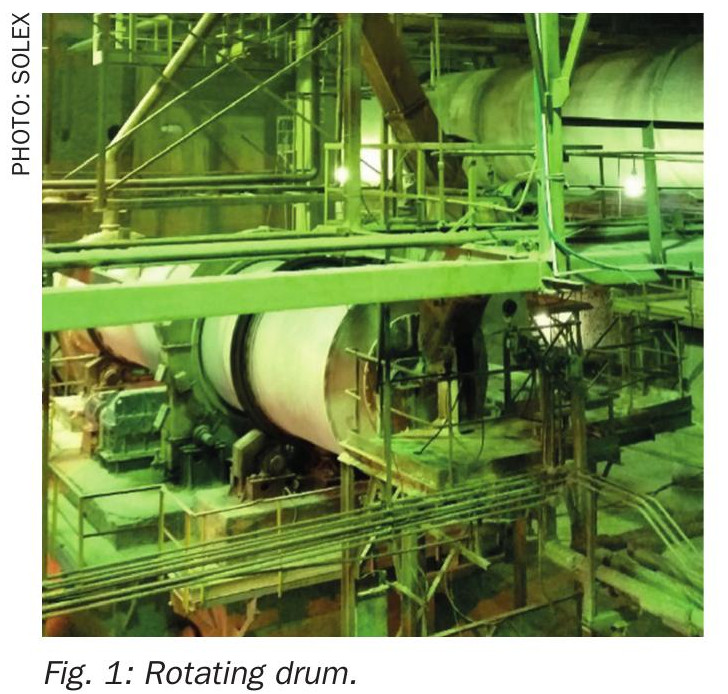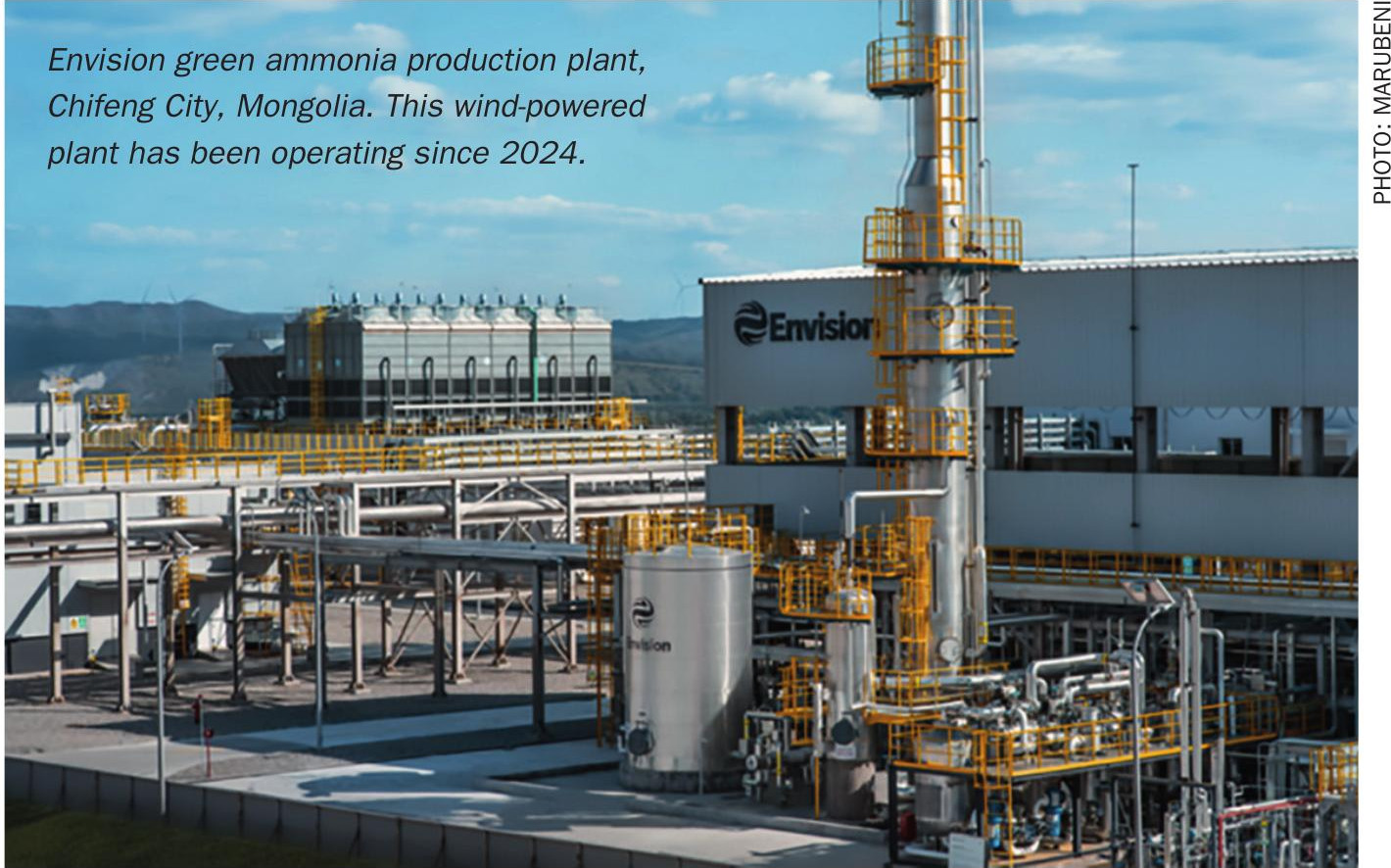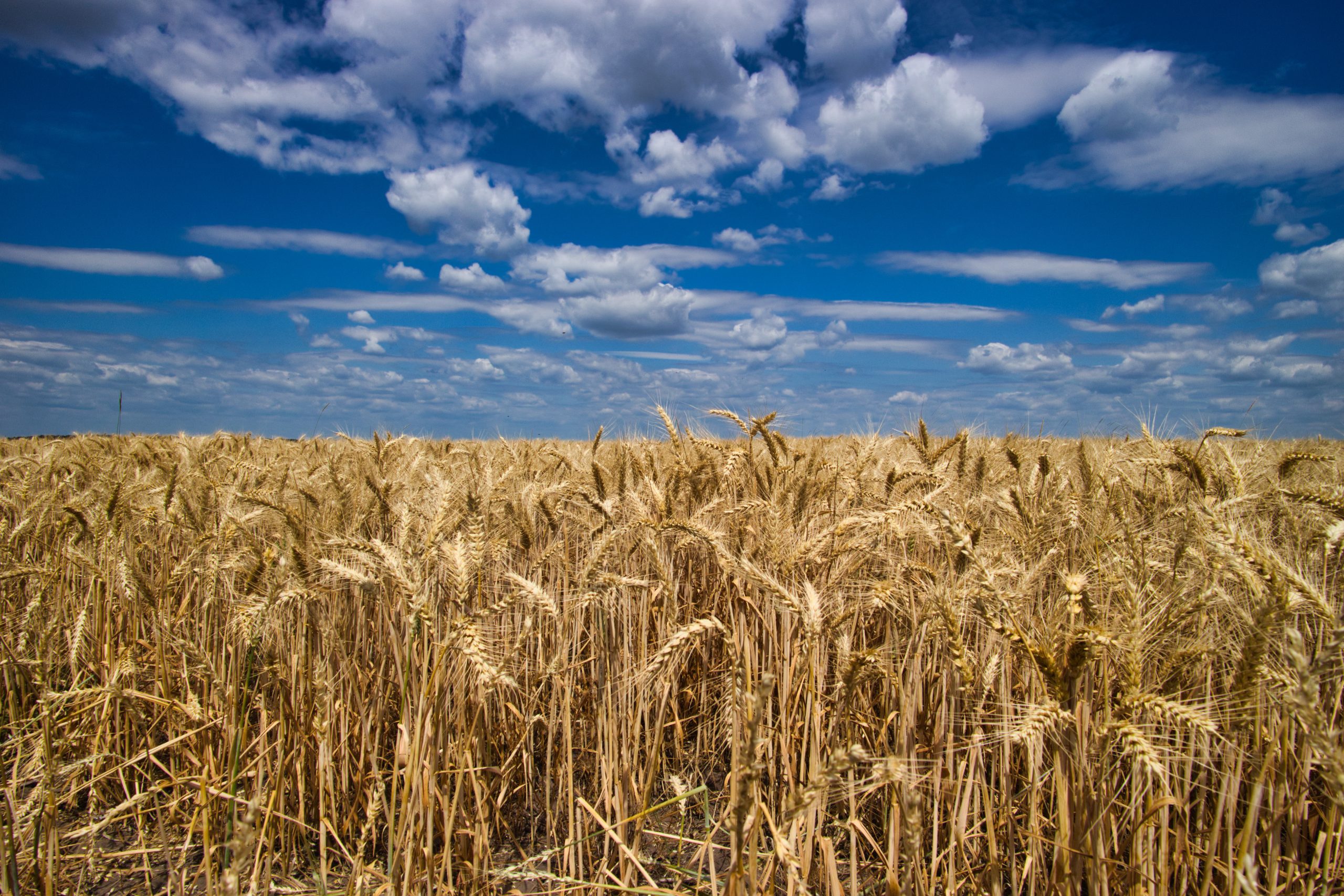Nitrogen+Syngas 396 Jul-Aug 2025

21 July 2025
BASF launches two renewable ammonia grades
BASF has expanded its sustainable product portfolio by launching two new renewable ammonia grades; renewable ammonia and renewable 24.5% ammonia solution. BASF produces the renewable ammonia grades at its Verbund site in Ludwigshafen by feeding renewable hydrogen into the ammonia plant, reducing the plant’s natural gas consumption. The plant uses both gas-based hydrogen as well as renewable energy, and attributes the renewable component via a mass balance approach, allowing a proportion of production to be designated as renewable. The two product grades have been certified according to ISCC+ and can be used as ‘drop-in’ solution in the same way as the conventional products. The renewable ammonia grades are available in usual bulk mode.
“Our biggest goal is net zero of our products. With our renewable ammonia, we can significantly undercut the product carbon footprint of our other low-CO2 ammonia grades”, said Dr.
Jens Assmann, Vice President Business Management Ammonia Value Chain and Operations Amino Resins at BASF. “Demand for low-carbon or ‘green’ ammonia has constantly increased in the past years and is expected to still rise in the future. Our customers, as well as BASF’s own downstream businesses, need low-carbon products already today to explore their market”, Assmann emphasised. “We are proud to offer the first renewable ammonia produced in Central Europe with a very low carbon footprint.”






